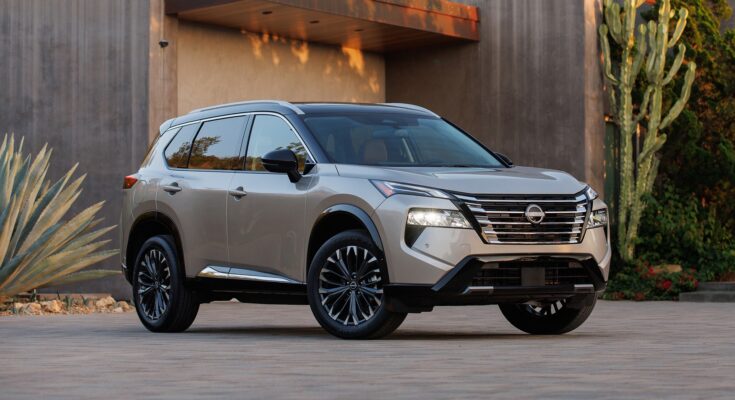Understanding the Nebraska Car Insurance Legal Landscape
Navigating the aftermath of a car accident in Nebraska is complex, intertwining physical recovery with the intricate demands of insurance claims and legal procedures. Nebraska operates as a “fault” car insurance state, a foundational principle that dictates how victims seek compensation. This means the driver who is found to be at fault for causing the accident is financially responsible for the resulting damages. While this seems straightforward, the reality involves negotiating with insurance adjusters, interpreting policy language, and often, litigating to secure a fair outcome. This is where a Nebraska car insurance lawyer becomes an indispensable ally, equipped to protect your rights against powerful insurance companies.
When Do You Absolutely Need a Car Insurance Lawyer in Nebraska?
Not every fender-bender requires legal representation. However, specific scenarios significantly benefit from the expertise of a specialized attorney. Recognizing these situations can be the difference between a dismissed claim and full financial recovery.
- Significant Injuries or Fatalities: If the accident resulted in severe injuries (e.g., broken bones, head trauma, spinal cord injuries) or the tragic loss of a loved one, the stakes are immensely high. Insurance companies will vigorously defend against large payouts. A lawyer ensures your claim reflects the true long-term medical, emotional, and financial impact.
- Disputed Liability: When the fault for the accident is unclear or contested by the other driver and their insurer, proving negligence becomes a legal battle. Lawyers investigate the scene, gather evidence like police reports and witness statements, consult accident reconstruction experts, and build a compelling case for liability.
- Bad Faith Insurance Practices: Nebraska law requires insurance companies to handle claims fairly and in good faith. If an insurer unreasonably delays your claim, denies it without a valid explanation, offers a settlement far below value, or fails to conduct a proper investigation, they may be acting in bad faith. A lawyer can identify these tactics and pursue not just the owed benefits but also potential additional damages for the bad faith conduct.
- Complex Claims Involving Multiple Parties: Accidents involving commercial trucks, government vehicles, multiple drivers, or rideshare services (like Uber or Lyft) introduce layers of complexity. Determining which policies apply and who is ultimately responsible requires legal expertise to navigate multiple insurance providers and potential lawsuits.
- Lowball Settlement Offers: Insurance adjusters often make quick, initial offers that are insufficient to cover current and future medical bills, lost wages, and pain and suffering. An attorney accurately values your claim, accounting for all economic and non-economic damages, and negotiates from a position of strength.
Key Roles and Responsibilities of Your Lawyer
A Nebraska car insurance lawyer performs a multifaceted role, managing every aspect of your claim to alleviate your burden and maximize your compensation.
- Case Evaluation and Investigation: They conduct a thorough initial assessment, then deploy resources to investigate the accident. This includes obtaining the official crash report, collecting photographs and video evidence, identifying witnesses, and preserving critical evidence that might otherwise be lost.
- Communication with Insurance Companies: Your lawyer handles all correspondence with the involved insurance companies. This protects you from making statements that could be misconstrued and used to devalue your claim. They present your demand package in a professionally structured manner.
- Accurate Damage Calculation: Attorneys work with medical professionals, economists, and vocational experts to project the full scope of your losses. This includes future medical care, rehabilitation costs, loss of future earning capacity, and the intangible value of your pain and suffering.
- Skilled Negotiation: Leveraging their knowledge of Nebraska law and experience with similar cases, your lawyer negotiates assertively to reach a settlement that truly reflects your claim’s worth. They understand the tactics used by adjusters and how to counter them effectively.
- Trial Litigation: If a fair settlement cannot be reached, your attorney must be prepared to file a lawsuit and advocate for you in court. This litigation expertise is a powerful tool that often motivates insurers to settle favorably before a trial.
Nebraska’s Comparative Negligence Law: The 51% Bar
Nebraska follows a modified comparative negligence rule, specifically the “51% Bar” system. This doctrine is critical to understanding your right to compensation. If you are found to be partially at fault for the accident, your total compensation award is reduced by your percentage of fault. However, if you are deemed 51% or more at fault, you are barred from recovering any damages from the other party. For example, if a jury awards you $100,000 but finds you 20% responsible, you would receive $80,000. If you are found 51% responsible, you receive nothing. A car insurance lawyer fights to minimize your assigned percentage of fault, preserving your ability to recover damages.
What to Look for When Choosing a Nebraska Car Insurance Lawyer
Selecting the right legal representation is a consequential decision. Key factors to consider include:
- Proven Experience with Auto Insurance Claims: Ensure the lawyer or firm specializes in personal injury and insurance law, not general practice. Ask about their track record with cases similar to yours.
- Resources and Network: Complex cases require resources. A well-established firm will have the financial capability to hire expert witnesses (medical specialists, accident reconstructionists, economists) and conduct extensive investigations.
- Clear Fee Structure: Most car insurance lawyers work on a contingency fee basis. This means you pay no upfront fees; their payment is a pre-agreed percentage (typically 33-40%) of the settlement or award they secure for you. If they don’t win, you don’t pay. Always clarify the fee agreement during your initial consultation.
- Local Reputation and Client Reviews: Research the lawyer’s reputation with the Nebraska State Bar Association and read reviews from past clients. Testimonials can provide insight into their communication style, professionalism, and success.
- Personal Rapport and Communication: You will work closely with this person during a stressful time. Choose someone who listens to you, explains things clearly, and makes you feel confident in their abilities.
The Financial Aspect: Understanding Contingency Fees and Costs
The contingency fee model makes high-quality legal representation accessible to everyone. Before signing a representation agreement, understand what costs are covered. While the attorney’s fee is contingent on winning, there may be case-related costs, such as filing fees, expert witness fees, and costs for obtaining medical records. Reputable firms typically advance these costs and are reimbursed from the settlement or award. The agreement should explicitly state how these costs are handled.
Steps in a Typical Nebraska Car Insurance Claim with a Lawyer
- Initial Consultation: Most lawyers offer a free case evaluation. Bring all relevant documents: the police report, your insurance policy, medical records, correspondence from insurers, and photos of the accident.
- Investigation and Demand: After being hired, your lawyer investigates and gathers evidence to build a strong case. They then submit a detailed demand letter to the at-fault party’s insurer, outlining the facts, liability, and the full amount of damages sought.
- Negotiation: The insurance company will respond, often with a counteroffer. Your lawyer engages in back-and-forth negotiations to reach a fair settlement.
- Filing a Lawsuit: If negotiations stall, your attorney will file a lawsuit in the appropriate Nebraska court (e.g., District Court for larger claims, County Court for smaller ones). This begins the formal discovery process, where both sides exchange evidence.
- Mediation/Settlement Conference: Before trial, courts often require mediation—a facilitated negotiation with a neutral third party. Many cases settle at this stage.
- Trial: If a settlement is still not achieved, your case proceeds to trial, where a judge or jury will determine the outcome and award damages.
Unique Nebraska Considerations: Uninsured and Underinsured Motorist Coverage
Nebraska law requires all auto insurance policies to include Uninsured Motorist (UM) and Underinsured Motorist (UIM) coverage unless explicitly rejected in writing. This is crucial protection. UM coverage applies if you’re hit by a driver with no insurance. UIM coverage applies if the at-fault driver’s policy limits are too low to cover your damages. Pursuing a UM/UIM claim is often a complex process of negotiating with your own insurance company. A lawyer is essential to navigate this process and fight for the benefits you paid for, which can sometimes involve allegations of bad faith.

